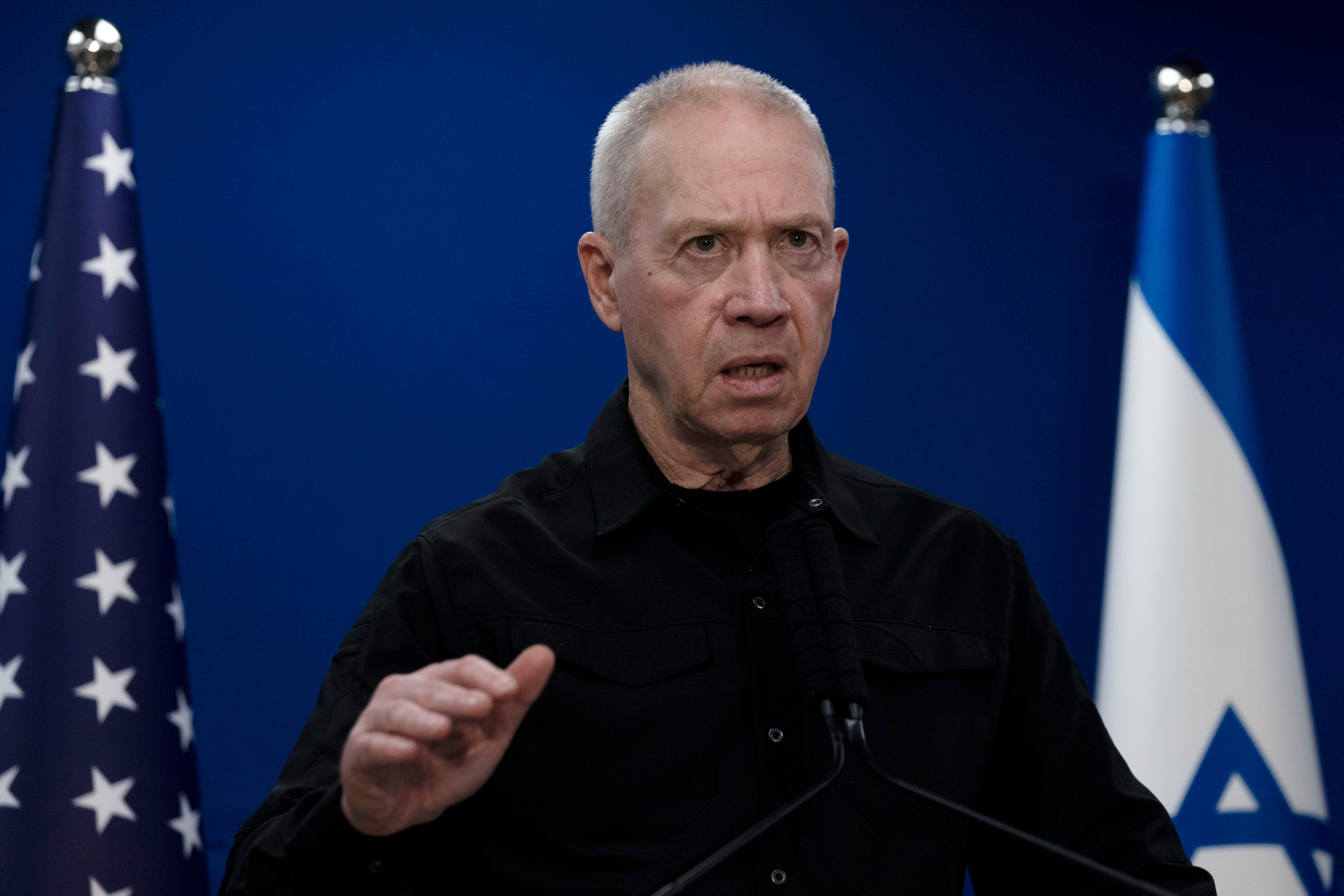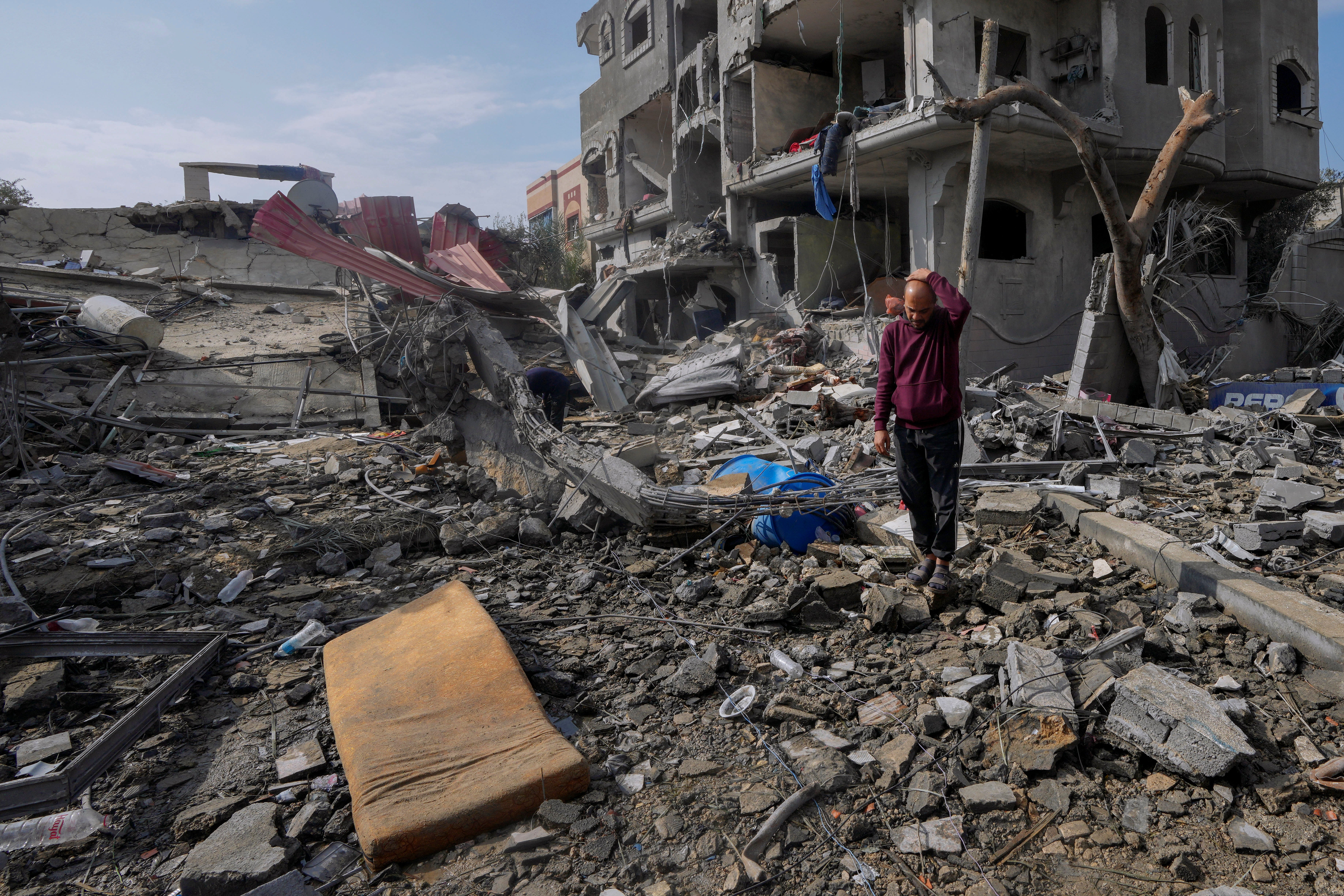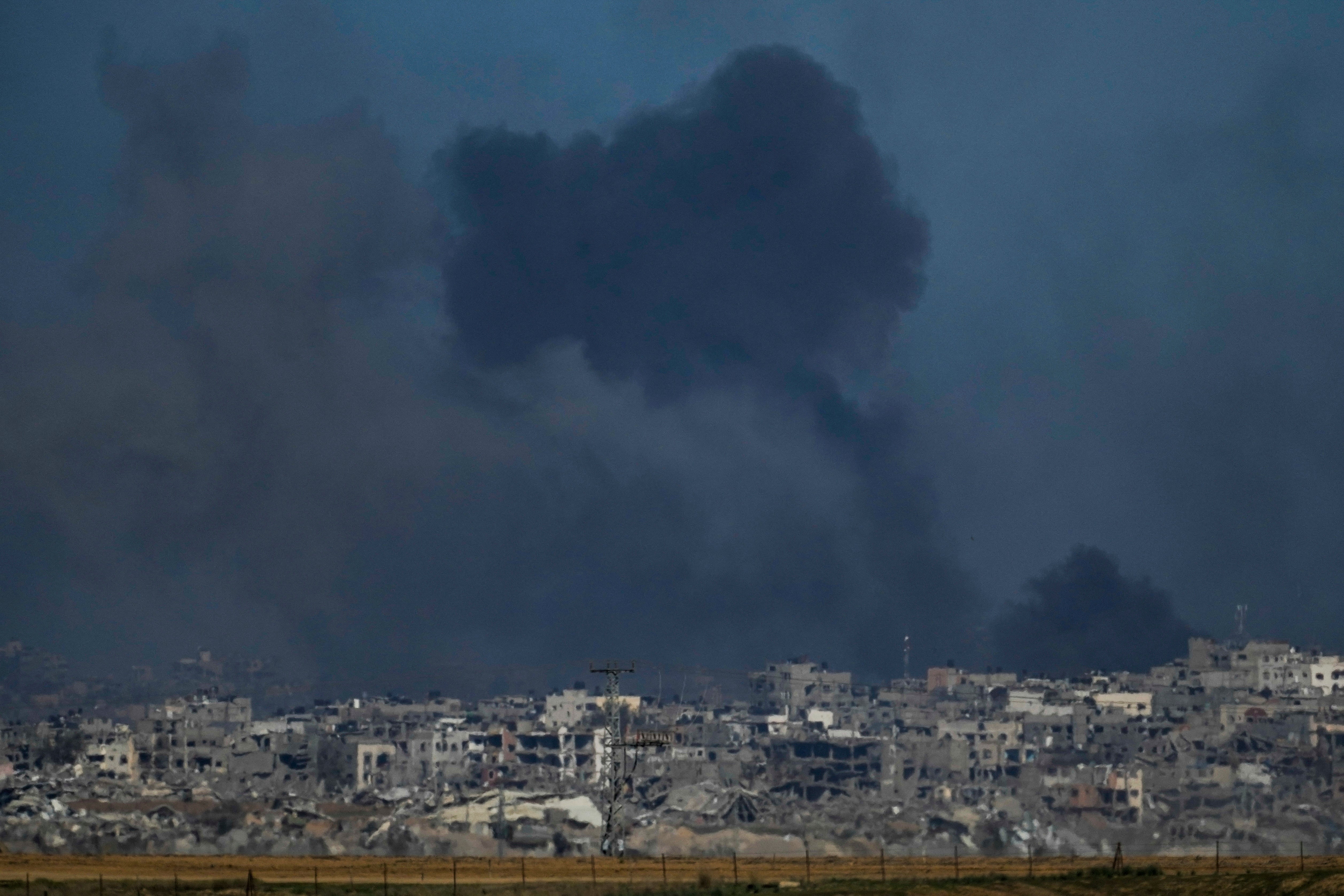Israel readies for war on 7 fronts as attacks recorded in neighbouring countries
Israel’s leader Benjamin Netanyahu says the fighting isn’t close to finished as the death toll in Gaza rises past 20,000
Israel has warned they are in a war on seven fronts as attacks recorded in a handful of neighbouring countries in the last 48 hours spark fears of the conflict escalating to the wider region.
In an address to the Israeli government on Tuesday, Yoav Gallant, the country’s defence minister and one of only three members of its war cabinet, said they were coming under attack from Gaza, Lebanon, Syria, the West Bank, Iraq, Yemen and Iran.
“We are in a multifront war and coming under attack from seven theatres,” he said, before listing them all.
Without specifying, he added that they were taking action on six of the fronts.
His comments came as explosions were recorded off the coast of Yemen, presumed to be an attack by Iranian-backed Houthi rebels, and missiles were fired into Israel by the Iranian-backed Hezbollah forces in southern Lebanon.

The British Maritime Authority said on Tuesday that missiles had been sighted off the coast of Yemen, near Houthi positions, and advised vessels travelling through the Red Sea to transit with caution. They said they had also seen multiple explosions in the area throughout the day, though there were no casualties.
The reported incidents come a week after the United States announced a multinational maritime security initiative in the Red Sea in response to attacks on vessels by Yemen’s Houthis.
The Iranian-backed Houthi militia has been attacking commercial vessels in the Red Sea since October, a campaign the group says is in solidarity with Palestinians besieged by Israel in Gaza.
Israel’s military said that, more than a thousand miles directly north, southern Lebanese forces had hit a church and injured a civilian after an exchange of missiles across the border.
They accused Iranian-backed Hezbollah of deliberately firing at Israeli civilian and religious sites after a Greek Orthodox church was struck on Tuesday.
There were an additional two attacks recorded in northeastern Egypt, close to the southern Israel and Gaza borders, and on the Israeli embassy in New Delhi, India. There were no casualties in either attack and it remains unclear who was behind them.
On Monday, meanwhile, a watchdog said an Israeli airstrike in Syria killed an Iranian general, while US warplanes hit Iranian-backed militias in Iraq which had wounded American soldiers in drone strikes. Both drone attacks led to vows of revenge.
Within Gaza, Israel continued its bombardment of the enclave as part of its goal to destroy Hamas, another Iranian-backed group that launched the deadly attack on Israeli soil on 7 October that killed 1,140 people and led to 240 people being taken hostage.
More than 20,900 Palestinians have been killed by Israel’s retaliatory aerial bombardment and subsequent ground invasion of Gaza, according to the local, Hamas-run health ministry. More than 240 were killed in the last 24 hours, the ministry added.
On Tuesday, Israeli forces bombed Palestinian refugee camps in central Gaza and issued orders telling residents to evacuate the area.

With Israeli forces now spread throughout the enclave and bombing all corners of it, it is becoming increasingly difficult for Palestinians to find somewhere to shelter.
The United Nations said they were gravely concerned about the ongoing Israeli bombardment and the recent focus on central Gaza, having spent months fighting in the north and south.
Despite international pressure for a ceasefire and US calls for a reduction in civilian casualties, Israeli prime minister Benjamin Netanyahu says the fighting “isn’t close to finished”.
An Israeli move into central Gaza – what a top Israeli foreign official said amounts to a “transition from the second to the third stage” – further shrinks the area into which Gaza’s 2.3 million people have been forced to squeeze.
Already more than 85 percent of the population has been driven from their homes.

The Israeli military issued an order on Tuesday calling on residents to evacuate a belt of territory the width of central Gaza, urging them to move to Deir al-Balah, a small city nearby.
But Deir al-Balah and Rafah, another small strip of land in the far south on the Egyptian border, have been overwhelmed with displaced people, even as Israel bombards them.
The UN Security Council last week called for the immediate speeding up of aid deliveries to Gaza but there has been little concrete sign of a change. The UN says it struggles to distribute aid because many areas are cut off by fighting.
UN officials have now said a quarter of Gaza’s population is starving under Israel’s siege.
Israel blames Hamas for the high civilian death toll and humanitarian issues in Gaza, citing the militants’ use of crowded residential areas and tunnels. Israel also says it has killed thousands of Hamas militants, without presenting evidence.
Join our commenting forum
Join thought-provoking conversations, follow other Independent readers and see their replies
Comments
Bookmark popover
Removed from bookmarks